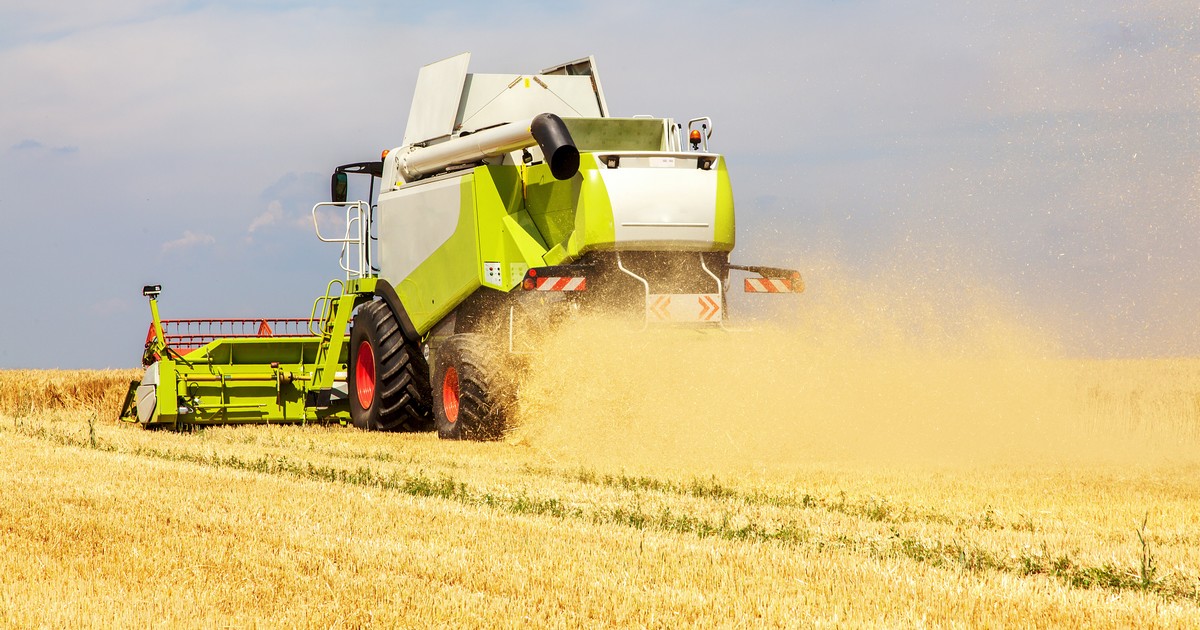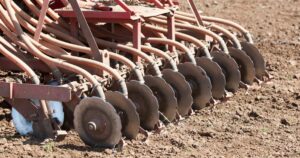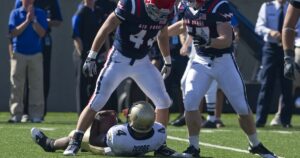The combine, originally called the combine harvester, is a machine that harvests grain. It combines three harvest operations: reaping, threshing, and winnowing.
Winnowing uses wind to separate chaff and dust from grain. In ancient farming, harvesters gathered the crop onto an outdoor threshing floor. They tossed the mixture into the air with winnowing forks. Wind blew away straw, chaff, and dust. Grain, being heavier, did not blow away. It fell to the threshing floor and was saved.
Combines use a fan to make wind. They blow chaff and dust out the back of the machine and save the grain into the hopper. Farmers still use the ancient expression to talk about the job a combine is doing, “saving grain.”
John the Baptist used winnowing as an illustration of God’s judgment on sin. He said about Messiah, “His winnowing fork is in his hand, and he will clear his threshing floor and gather his wheat into the barn, but the chaff he will burn with unquenchable fire.” (Matthew 3:12)
The Bible compares destruction to being made “like the dust at threshing.” For example, “There was not left to Jehoahaz [much of] an army … for the king of Syria had destroyed them and made them like the dust at threshing.” (2 Kings 13:7)
Dust refers to the curses for sin. Because the Devil sinned by tempting Adam and Eve, God cursed him. His curse was to eat dust. “The Lord God said to the serpent: ‘Because you have done this, you are cursed … on your belly you shall go, and you shall eat dust.’” (Genesis 3:14)
For Adam’s sin, God said, “Cursed is the ground for your sake.” (Genesis 3:17) He cursed the dust from which Adam came and to which Adam would go in burial. Under the curse, the field brought forth weeds with the crop. (Genesis 3:18) Jesus used weeds as symbols of sinners sewn by the Devil. (Matthew 13:24-30) After pronouncing this curse, God next said, “For out of [the ground] you were taken; for dust you are, and to dust you shall return.” (Genesis 3:19)
For Jesus to be buried is to go the way of dust, sin, curse, and judgment. Jesus volunteered to be buried for us. He hid his holiness in the grave, under dust, under our sin. “He assigned His grave with wicked men.” (Isaiah 53:9).
Combining was pretty rough on Jesus. It blew him out the back of the machine like dust, returning to the ground. In burial, Jesus underwent the winnowing of God for us. He went to the place of dust and was under the judgment of God for our sins, while we, like grain, were saved.
Burial did something to Christ’s glory. Burial humiliated him for our salvation. Because Jesus went to our grave for us, He has sanctified our graves, removing sin, curse, shame, and judgment, and making our burials in him holy and blessed.




